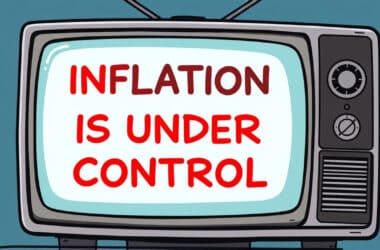The upcoming U.S. Jobs Report, set for release on Friday, September 6, 2024, will provide crucial insights into the state of the labor market. Economists are forecasting the addition of 163,000 nonfarm payroll jobs for August, a notable increase from the 114,000 jobs added in July. This anticipated rise is viewed as a positive indicator of the economy’s resilience amid ongoing challenges. Additionally, the unemployment rate is expected to edge down slightly to 4.2% from the previous 4.3%. In terms of wages, average hourly earnings are projected to grow by 0.2% month-over-month, reflecting steady, albeit modest, wage growth.
However, a widespread sense of dissatisfaction and mistrust has developed among investors toward the Bureau of Labor Statistics (BLS) after it was disclosed that nearly 1 million jobs reported in the BLS monthly jobs data for 2024 were inaccurately counted. The controversy centers around the BLS initially releasing strong job numbers for a given month, only to later revise those figures downward, often quietly and after the initial attention has shifted away from the previous reports.
Nomura’s Perspective: Slowing Hiring and Future Rate Cuts
Nomura, a leading financial services group, offers a nuanced view of the August jobs data. The firm notes that while underlying employment growth is cooling, the sharp slowdown seen in July may have been overstated due to temporary weather-related disruptions. As these effects normalize, a rebound in hiring is expected for August.
However, Nomura also warns that the general trend of slowing hiring could exert upward pressure on the unemployment rate over the medium term. Despite this, the firm does not anticipate a rapid increase in unemployment, as the slowdown in hiring has not yet resulted in widespread layoffs. Instead, any rise in the unemployment rate is expected to be gradual.
Nomura’s forecast is particularly noteworthy for investors, as the firm predicts three 25-basis-point interest rate cuts by the Federal Reserve in the coming months. These cuts would represent a significant shift in monetary policy, aimed at providing support to the economy amid rising layoffs.
BNP Paribas’ Optimistic Outlook
BNP Paribas presents a contrasting perspective, suggesting that payroll growth could surprise to the upside. The firm’s analysts believe the labor market remains robust and resilient, which could lead to higher-than-expected job gains in August. Like Nomura, BNP Paribas also expects the Federal Reserve to implement a series of 25-basis-point rate cuts, specifically in September, November, and December.
For investors, BNP Paribas’ outlook highlights potential opportunities in sectors sensitive to interest rate changes, such as housing, consumer goods, and utilities. If the labor market proves stronger than anticipated, it could indicate a more favorable economic environment, despite potential headwinds.
Why These Companies Are Important for Investors to Follow
Nomura and BNP Paribas are both critical for investors to monitor due to their influential positions in global financial markets and their ability to shape investor sentiment. Nomura’s insights are valuable for understanding the broader macroeconomic context, particularly given its reputation for detailed economic analysis and forecasts. The firm’s predictions regarding interest rate cuts could impact various asset classes, including equities, bondsUnited States Treasury securities are debt instruments issued by the United States government to finance its spending. Treasury securities come in a variety of forms, including bil... More, and currencies. For investors, aligning their strategies with Nomura’s expectations might provide a hedge against potential market volatility.
BNP Paribas, on the other hand, is a major player in global investment banking, and its more optimistic outlook may suggest opportunities in riskier assets. BNP’s expectation of stronger payroll growth could signal a more robust economic environment, prompting investors to consider sectors poised for growth in a healthier job market. Moreover, BNP’s anticipated rate cuts could lead to lower borrowing costs, which would benefit sectors such as real estate and consumer discretionary stocks.
Questions of Credibility: Nomura, BNP Paribas, and the BLS Job Reports
It is worth noting that both Nomura and BNP Paribas have faced criticism for their credibility after their extensive economic analysis failed to uncover that over 818,000 jobs reported in 2024 were inaccurately counted. Critics argue that both institutions appear to serve as supporters of the Democrat agenda, with some suggesting their role was to lend legitimacy to the questionable job reports released by the BLS each month.
A Crucial Moment for Investors
The August U.S. Jobs Report will serve as a critical data point for assessing the health of the economy and the likely direction of Federal Reserve policy. With different forecasts from major financial institutions like Nomura and BNP Paribas, investors are advised to closely watch the report’s release and subsequent market reactions. The report’s outcome could influence a range of investment strategies, from interest rate-sensitive sectors to broader market sentiment. Whether the labor market shows signs of resilience or continued cooling, the insights from these firms will be essential for navigating the complex economic landscape ahead.
- Hoth Therapeutics breakthrough! 🧬✨ Why one patient sent Hoth Therapeutics stock forecast soaring by 81% in a single day! - September 8, 2024
- BloomZ Stock Price Just Exploded! Here’s the scoop on their latest alliance and why investors are excited 💥 - September 8, 2024
- The 10-year Treasury rate chart shows a surprising twist… Did hedge funds miscalculate with their record shorts? 🤔 - September 8, 2024
💥 GET OUR LATEST CONTENT IN YOUR RSS FEED READER
We are entirely supported by readers like you. Thank you.🧡
This content is provided for informational purposes only and does not constitute financial, investment, tax or legal advice or a recommendation to buy any security or other financial asset. The content is general in nature and does not reflect any individual’s unique personal circumstances. The above content might not be suitable for your particular circumstances. Before making any financial decisions, you should strongly consider seeking advice from your own financial or investment advisor.











